Contact Form
You can email us at info@immersionvr.co.uk. Alternatively, you can fill in our contact form below and we will get back to you as soon as possible.
Virtual reality, or VR, is taking off in education with an increasing number of schools adopting the technology.
VR allows students to experience destinations from across the world without ever having to leave the classroom. Imagine students being able to explore the pyramids of giza whilst sat at their desks. This is what virtual reality education allows.
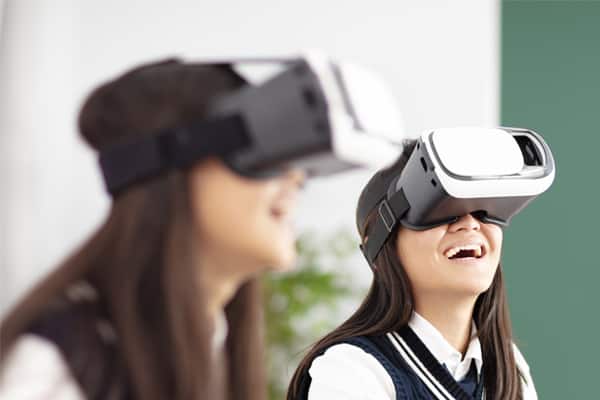
Most people have heard of virtual reality (VR) but many people do not know what it is or how it is used in learning and education.
VR refers to interactive content (images or videos) which enables the viewer to explore the entire 360 degrees of a scene.
Take a look at a short VR video of Roche Abbey in Yorkshire, below. You can click or drag across the video to view the entire scene.
A type of VR known as 360VR is most commonly used in education. With this type of VR, real-world locations are captured with specialist cameras and equipment. The footage is then taken back to the studio where it is produced into VR content.
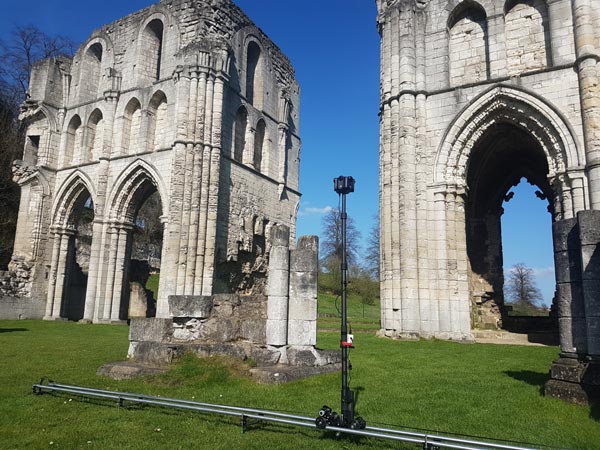
The VR content can then be viewed on VR headsets or projected onto walls in what are known as immersive classrooms.
360VR can be used in education to teach pupils about the world around them. What’s more, virtual reality has a unique ability to inspire and engage students.
Students can experience locations that would not be possible or too expensive to visit in person. In this way, VR can open a whole new world of possibilities to teachers and schools.
Virtual reality can improve education by providing students with memorable and immersive experiences that would otherwise not be possible. What’s more, it can all take place within the classroom.
VR is accessible to every student and can be easily monitored by teachers. Virtual experiences have the power to engage and inspire students in a unique and powerful way.
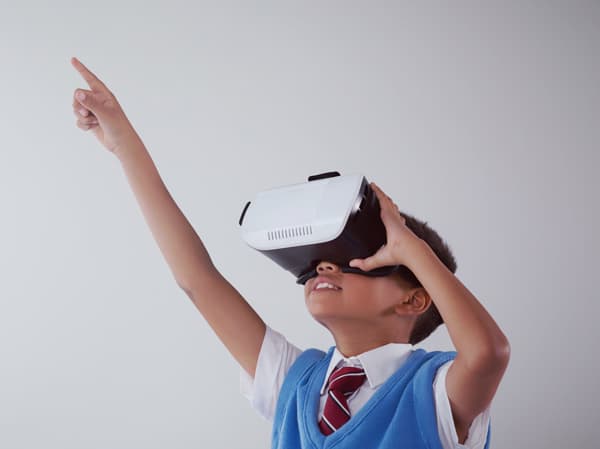
Given the growth of VR within education, and the positive response from schools, we wouldn’t be surprised if VR made it onto the curriculum at some point in the future. Curriculum aligned content and structured VR lesson plans have already been developed and are available in the UK.
There are so many ways in which virtual reality can help students but the main points are below:
VR provides students an opportunity to learn through experience, in contrast to the traditional methods of reading and writing.
Being able to see and experience extraordinary locations within the classroom is completely unique to VR and it is inspirational to students.
The immersive experience that VR provides is unparalleled in teaching. Students are “transported” out of the classroom and their imagination is allowed to flourish.
Throughout the VR experience, students are encouraged to interact with each other. Afterwards, they are eager to share their thoughts and discuss their experiences.
Many students get bored with classic teaching methods. The modern technology of VR gets students’ attention like nothing else. We find that students instantly want to try out the VR.
Using VR, schools can provide students with travel experiences that would not be possible or practical. Schools can save time and money whilst providing students with incredible experiences.
With VR, every student gets the same opportunity to enjoy the experience. Unlike traditional school trips that can be too expensive for parents or too impractical for their children, VR is for all students.
Long after the VR has finished, students remember the experience and they are eager to reflect on it in future lessons.
There are two main ways in which VR is implemented in the classroom: VR headsets, and immersive classrooms.
One of the most common and effective ways of utilising VR in education is via virtual reality classrooms, or immersive classrooms.
An immersive classroom is a teaching room in which images are projected onto the internal walls of the room. This creates a virtual environment within the classroom.
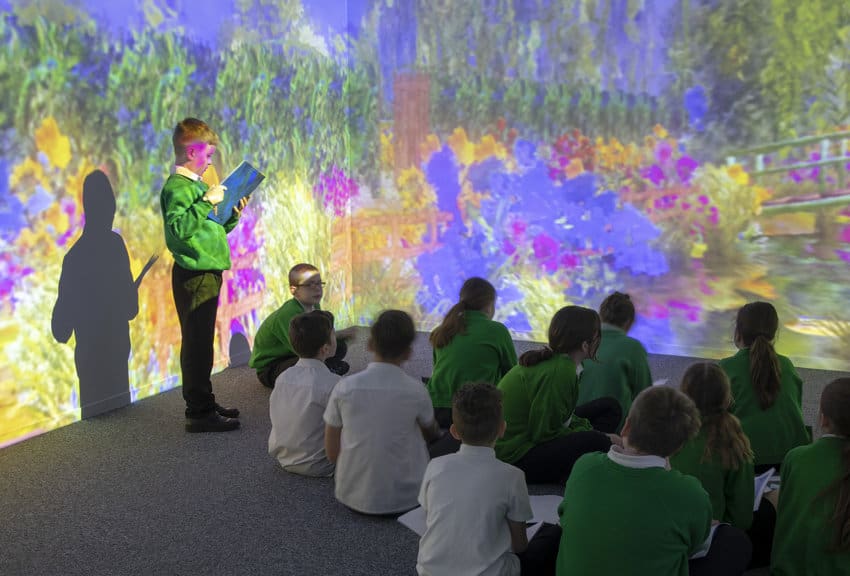
Students can be “transported” to a different place, without having to leave the classroom. Without the need for VR headsets, students can enjoy the experience together, and are encouraged to interact with each other.
Unlike VR headsets which some students can find difficult or uncomfortable to use, immersive classrooms are suitable for all students. The pupils are able to enjoy the VR content in a more familiar environment.
VR headsets are a common, practical way of implementing VR in the classroom. With minimal cost, equipment, and space needed, an increasing number of schools are turning to VR headsets.
For a classroom of 30 students, typically up to 15 headsets are required. These are usually standalone headsets, which means they don’t have to be connected to any other device, such as a computer.
Teachers are taught how to use the headsets before implementing them into a lesson.
The main benefit of VR headsets is the level of immersion they provide. Although they can be a little more tricky to use than immersive classrooms, they provide an incredibly realistic experience. An experience that students aren’t likely to forget in a hurry.
VR can be effectively used in primary education, and is becoming increasingly common in the UK.
Immersive classrooms tend to be more popular than VR headsets amongst primary schools. This is because every student can be easily monitored, and young students do not need to be shown how to use headsets. This ensures that the experience is smoother and equal for all the students.
Pupils are asked to look around and talk about what they see. This provides opportunities for students to collaborate and can particularly improve interaction amongst more introverted students.
Reducing social barriers at a young age is extremely important and is one of the reasons many primary schools are turning to VR.
Within secondary education, VR headsets tend to be more popular than immersive classrooms. This is because the impact on older students tends to be greater with the headsets.
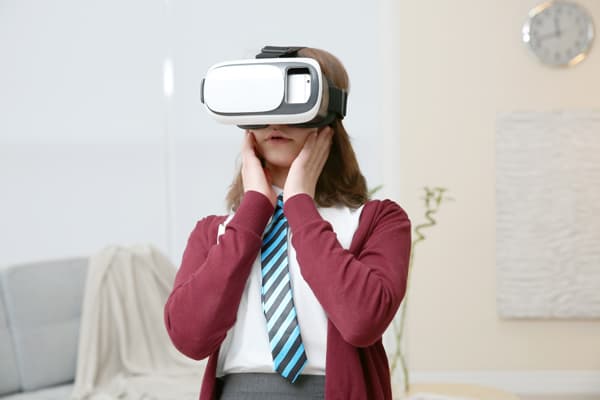
With the entire field of view enclosed, the sense of immersion with a VR headset is unparalleled. Also, unlike with primary school pupils, secondary students are better able to use the headsets, requiring less input and guidance from the teacher.
By utilising VR headsets, teachers are able to provide secondary students with a feeling of actually “being there” – this is what we mean when we talk about immersion. For many students this is an incredible experience, and it is something that really has to be tried before it can be judged.
VR can be great for those students with learning difficulties. Students can learn about the world around them in a safe and controlled environment.
As with primary school students, immersive classrooms tend to be the most popular form of VR for helping students with learning difficulties.
It is not uncommon for students to struggle with using VR headsets. With an immersive classroom, teachers can take the lesson in a much more normal way. The students are still able to look around and explore the virtual surroundings, but they can do so in a familiar way, without feeling closed in.
VR has been found to be helpful for students with autism. A study by Strickland et al. (2007) showed that children with autism could apply skills they had learnt in a virtual environment to the real world. This included skills in fire and street/road safety. – Source
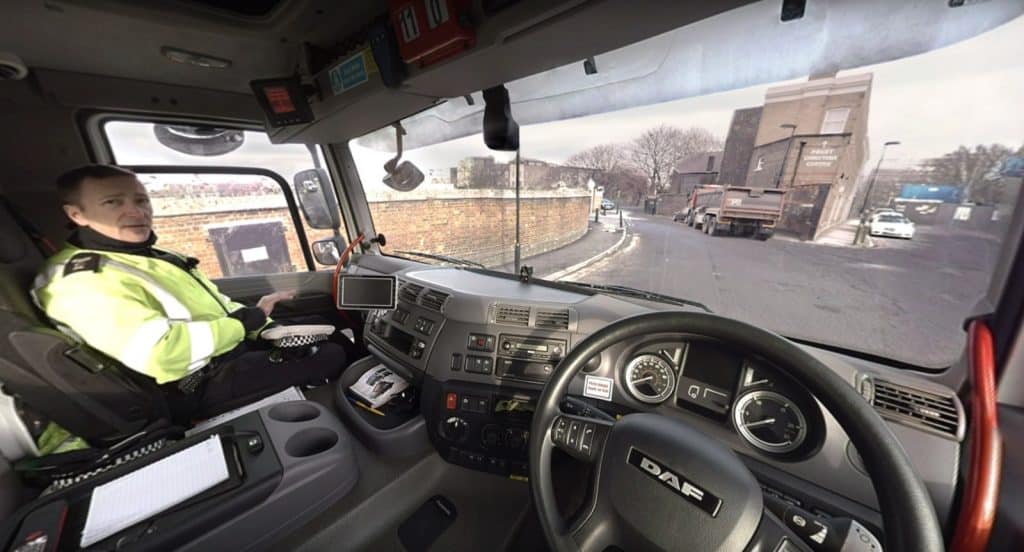
A virtual field trip allows students to experience a location in a memorable and immersive with the help of VR. With no need for permission slips, teachers can take students to incredible places without having to leave the classroom.
Take a look at a short video montage below of footage we took at Roche Abbey in Yorkshire. You can click or scroll across the video to explore the entire scene.
This type if content can be viewed on a VR headset. By using VR headsets, students are able to experience a location in a realistic way, moving their head to look around and explore their surroundings.
Virtual field trips are amongst the most common ways in which VR is used within education and they offer many benefits to both students and schools.
Almost every student enjoys a school trip, whether that be to a museum, monument, or even another country. Unfortunately, many students are unable to experience them, for a variety of reasons. This could be due to a disability, the expense, or transport issues, amongst other reasons.
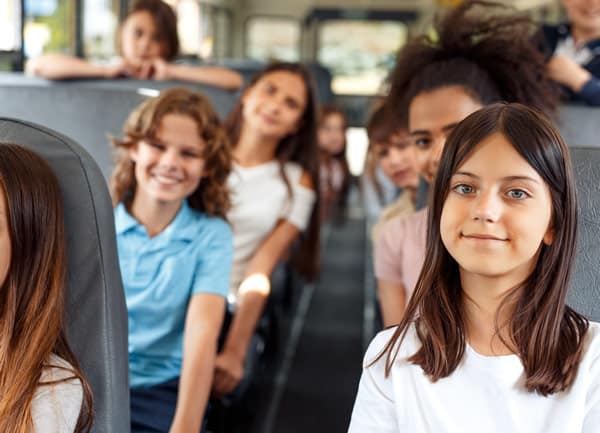
With VR, every student can enjoy the same field trip experience together, free of charge. This level of inclusion, with 100% attendance, is simply not possible with traditional field trips.
Schools can save time and money by providing travel experiences without having to leave the classroom. Whilst many schools do not yet see virtual field trips as a replacement for real school trips, the trend is certainly towards VR.
With school budgets being increasingly squeezed, the cost savings associated with travel, tickets, and time cannot be ignored. Apart from the initial installation cost and the minimal teacher training, virtual field trips are largely free. What’s more, there’s no need for teachers to spend time writing and obtaining permission slips.
As well as reducing cost spent on field trips, virtual trips allow students to experience locations that would be otherwise too expensive and impractical for schools to visit. Being able to allow the entire class to experience the colosseum, is now possible.

The value that virtual trips can add to schools is huge. Whilst they may not replace regular trips completely, they can reduce the need for them and provide an additional experience to students at an affordable cost to schools.
Virtual school trips offer a welcome change from traditional reading and writing. They can be used as a way of breaking a topic up or introducing a new one, and they help to retain the students’ attention.
What’s more, many teachers understand that offering a variety of teaching methods is important, helping students to learn in different ways. Not every student learns well with traditional teaching, and VR offers one more excellent way of engaging students.
When it comes to learning about an environment, there is no substitute for being there. Whilst regular images and videos are far better than text, this is where VR really shines. With a virtual field trip, students can actually feel as though they are at the location and can get a better sense of the scale and the surroundings.
This could be learning about history and visiting a monument or learning about the environment and visiting a nature reserve. The possibilities really are endless. The virtual content can be tailored to the lesson plan and subject, enabling teachers and schools to control the narrative.
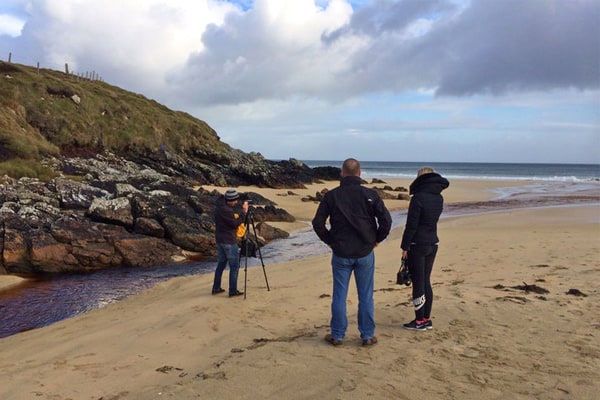
Allowing students to imagine a location with a realistic experience often helps to get them interested in a subject. Environments that were previously out of reach can be brought to life in the classroom.
Virtual field trips are one of the most effective ways of introducing students to one of our greatest challenges – climate change.
Whilst there may be no substitute for science when it comes to climate change, getting students interested in it in the first place can be a real challenge.

By transporting students to places such as the arctic, they can start to feel a connection with the environment. This can help students to understand and care about major concerns such as global warming.
At Immersion VR, we produce VR content for schools across the UK. We film on location at destinations around the world.
We have seen the growth of VR within education and we are excited about its future. Inspiring the younger generation is something that we want to be a part of at Immersion VR.

We produce content for both immersive classrooms and VR headsets. With our wealth of experience within the industry, we are able to tailor our offerings to the school’s requirements.
VR educational content can be produced to fit around the lesson plan and the curriculum. We provide help and advice wherever we can, allowing schools to get the most out of VR.
If you would like some more information, please fill in the contact form below.
You can email us at info@immersionvr.co.uk. Alternatively, you can fill in our contact form below and we will get back to you as soon as possible.